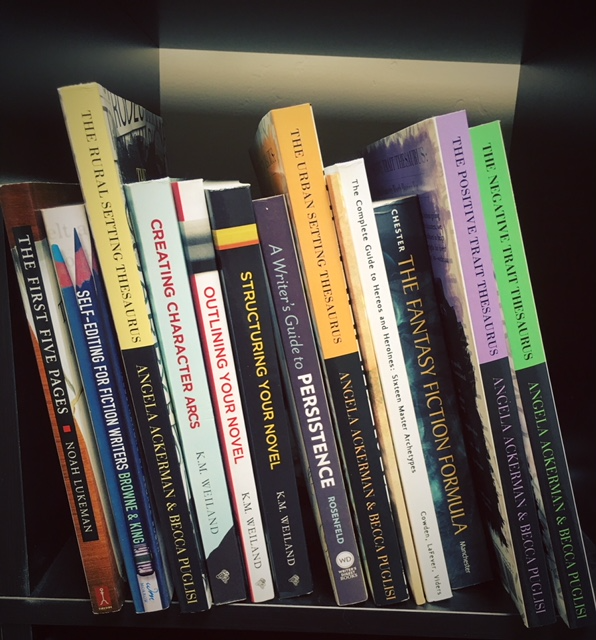You’ve done it! You’ve written the first draft of your book! A very merry congratulations to you, and you deserve a beer. Maybe even a vacation. At the very least, a trip to the gas station to buy three packets of candy. If you feel proud of yourself, you absolutely should. If you don’t feel very proud of yourself, then congratulations again, that just means you’re a writer.
 Any good writing website or book worth its salt will tell you your next step is to revise the sucker. Yes, you must do this step. Yes, everyone else hates it, too. Some books or fellow writer humans will advise you to put the book down for a set period of time to let it “rest,” like a good yeast bread needs a good rise. Unfortunately for your book, it doesn’t keep getting better in that resting period like bread does. No, no. It’s still the piece of crap you left a few weeks ago. So instead of the story rising like bread, think of it this way: YOU’RE doing the rising. You walked away for a few weeks and grew wise enough to rise above the piece of crap you made in order to come to a place where you can look past your subjective love of the story and objectively say, “Ah yes, indeed, this is a piece of crap.”
Any good writing website or book worth its salt will tell you your next step is to revise the sucker. Yes, you must do this step. Yes, everyone else hates it, too. Some books or fellow writer humans will advise you to put the book down for a set period of time to let it “rest,” like a good yeast bread needs a good rise. Unfortunately for your book, it doesn’t keep getting better in that resting period like bread does. No, no. It’s still the piece of crap you left a few weeks ago. So instead of the story rising like bread, think of it this way: YOU’RE doing the rising. You walked away for a few weeks and grew wise enough to rise above the piece of crap you made in order to come to a place where you can look past your subjective love of the story and objectively say, “Ah yes, indeed, this is a piece of crap.”
That might sound a bit dreary, but I know you. *winks* I know you because you’re a writer like me, and although you see what you’ve written as a piece of crap in front of you, you still love it and will do the work necessary to make sure it’s a remarkably great piece of crap instead of just a regular, old piece of crap.
First, may I just confirm what you’ve already been feeling? Yes, it’s hard. It’s going to be difficult at times. But let me reassure you as well: if you’ve already written the first draft, you can certainly complete these revisions. Not only that, you can do it in less then ten years. Maybe even less than five. If you’re lucky and ignore all of your adult responsibilities, a month.
Let me tell you the secret of doing revisions. You’re going to be surprised, because you’ve already learned this lesson when you were writing the first draft.
Ready?
Here it is.
You make yourself do them.
Just like you made yourself sit down and write when you didn’t feel like it, when you didn’t feel inspired to do so. You get yourself in the zone however you did when you were writing. You sit down with your cup of tea. You put on the music that gets you going, and you do it.
Everything else is just details. Should a comma go there? Is her hair dark brown or more of a medium brown? Do I italicize internal dialogue? Is the book long enough? Will people like it? Will I ever make it through all these stupid edits?
All of those fears and questions? Just the details.
Keep yourself focused on the big task in front of you: Just. Do. The. Revisions.
